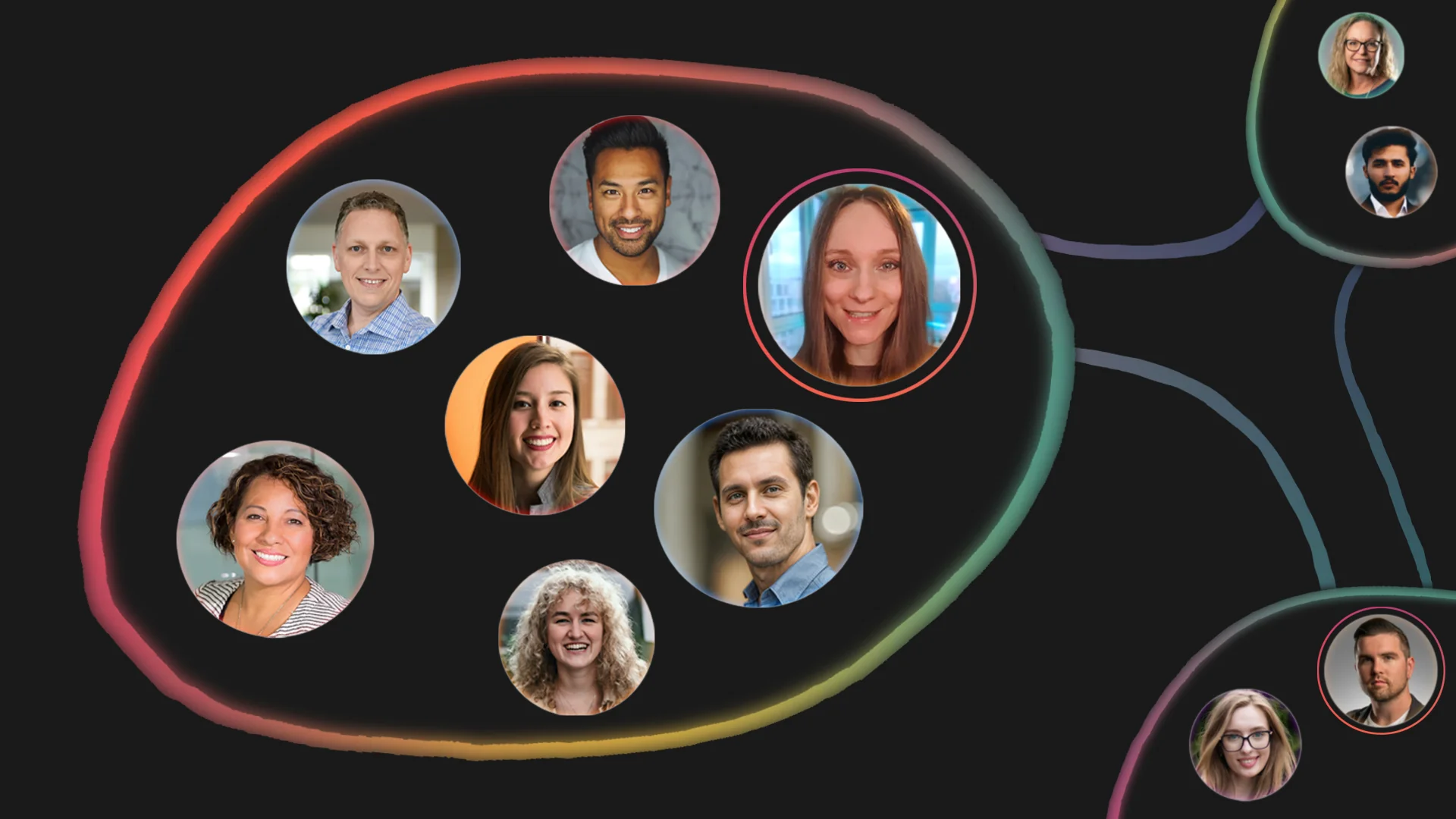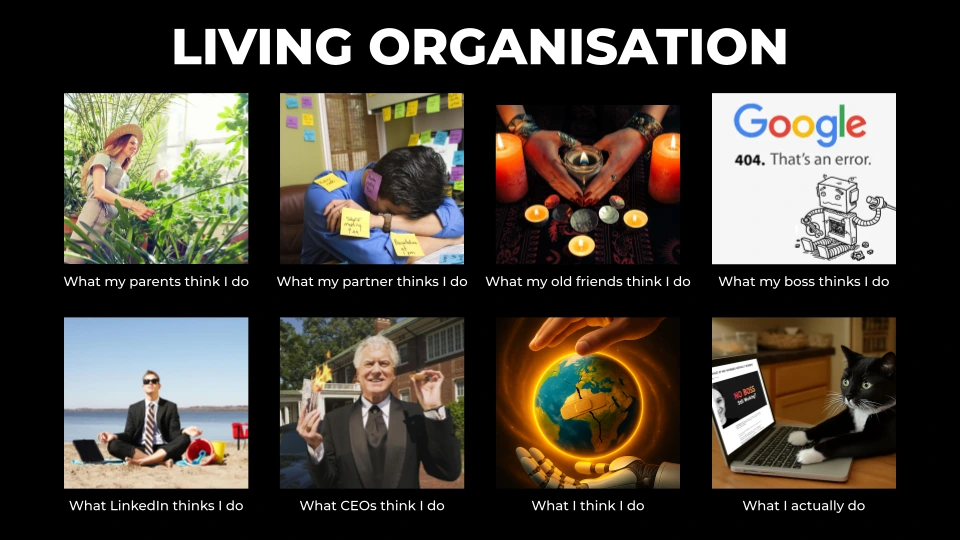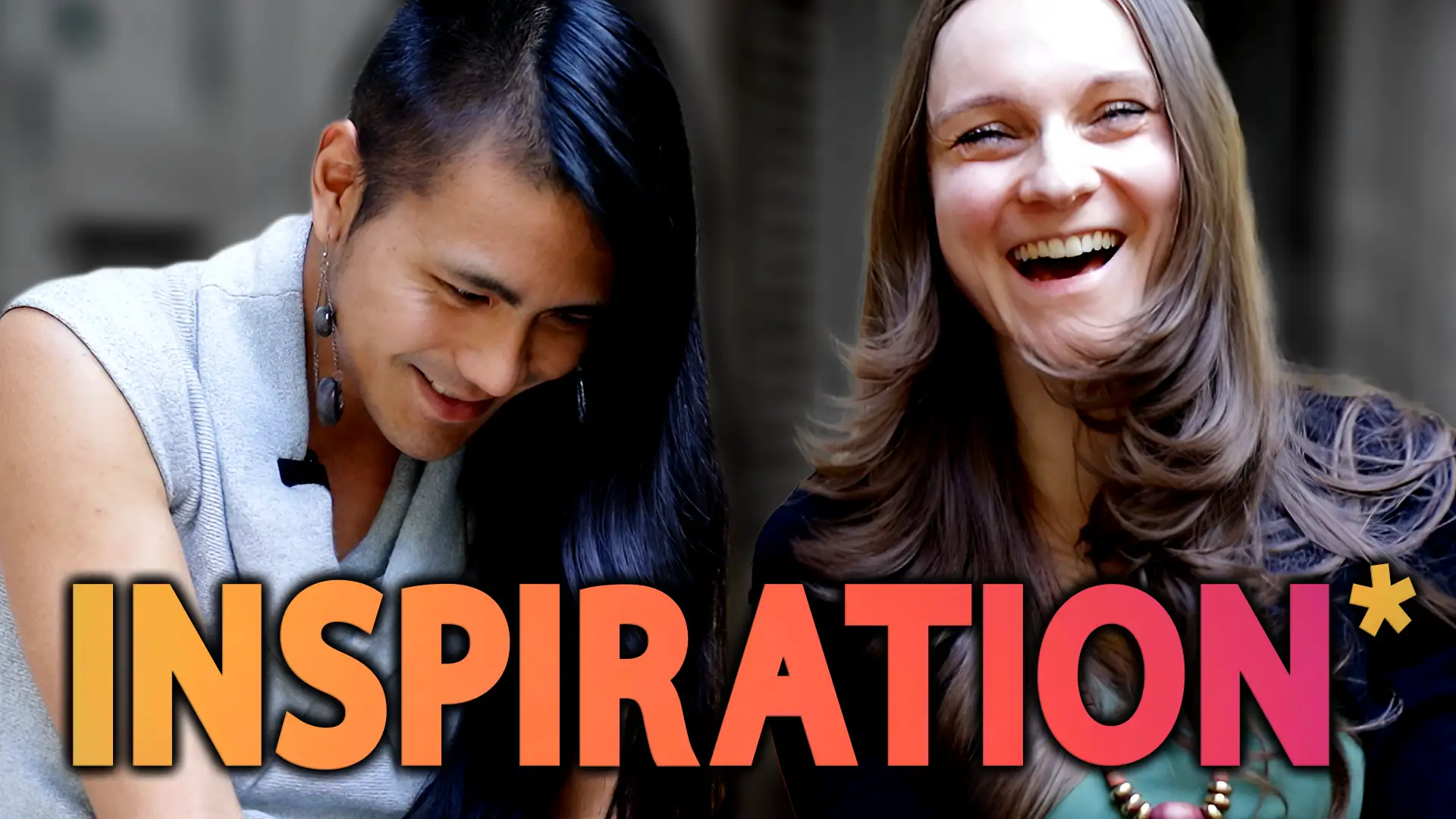As an M.Sc. psychologist and coach, my job is not to have all the answers. Quite the opposite. My job is to ask effective questions.
This time, I got inspired.
Steven Bartlett emails 100 CEOs every month with one question voted on by his community and shares their best answers. Steven is the founder of FlightStory and host of The Diary of a CEO. You might have seen him as an investor on the British TV show Dragons’ Den, the UK equivalent of Shark Tank or Höhle der Löwen.
No, I’m not a CEO.
But since 2013, I’ve been working with individuals, teams, and organizations through my coaching business – and I’ve noticed a few patterns I’d like to reflect on. As a writing challenge.
My writing is never a final answer. It evolves, just like the people and organizations I work with.
So welcome to 100 CEOs, 1 Coach!
Questions I’ve reflected on so far:
- What weight have you carried that no one saw?
- What's the best mistake you've ever made?
- Why does a business fail to transform?
- How do you create a culture where employees ACTUALLY want to give it their all?
- How do you keep your romantic relationships healthy and connected when work demands take over?
- What’s the biggest sign that a company’s culture isn’t what leadership thinks it is?
- Are remote-first companies setting up young employees to fail?
- 9-5 jobs vs. entrepreneurship: Which one is the BIGGEST risk?
- What are the biggest mistakes that start-up entrepreneurs ALWAYS make?
You’ll find my most recent reflections right at the top!
aka What does leadership really cost?
“The business is growing – quicker than me.” That was one of the first sentences from a person who later started working with me.
That’s the thing: everything around us changes – the business, the challenges, the expectations. The invitation is always the same: grow yourself, too. A lot of people decline that invitation.
Managers feel overwhelmed. Controlling, planning, management, leadership – it all piles up. And the higher you climb the ladder, the more concentrated the decision-making becomes. That can mean carrying anxiety, risk, and fear, all on top of leadership tasks.
There are strategies to carry that weight differently. Coaching offers space to explore them. It gives you a place to look at it, name it, and learn how to carry it better. I’ve said it a hundred times, and I’ll keep saying it: everyone deserves to work with a coach.
The world is fast, complex, and emotionally demanding. It takes real energy to show up every day without eroding authenticity or health. And it’s not that the leader is weak – it’s that the weight is heavy.
So why do we keep stacking it on one person’s shoulders?
We all look at the CEO, the president, the chancellor. But why, again?
Why don’t we shift the perspective – from the person at the top to the team, the people, the organization? What if leadership wasn’t a position at the top of something, but in the middle of something – distributed on different people’s shoulders depending on context and competence?
If we shared the leadership weight – it would be lighter.
— The original answers to this question are available here.
I carried that question around for weeks. I didn’t want to answer it with a cliché. But every time, I ended up in the same place: sure, I’ve made plenty of mistakes. But when I look at my work, I can’t bring myself to call them that.
Over the years, I’ve heard quite a few reactions to some of my decisions.
- Should I sign a three-year contract at an established bank – or become self-employed right away? I chose self-employment. “Courageous!”
- Should I invest five figures into coach training – or wait until I’m 100% sure? I invested. “Courageous.”
- Should I spend one more night working on my website and showing up online – or trust that my coaching practice will develop itself? I worked. “You should rest!”
So, were those mistakes? Only if the story ended after I made the choice.
Because when I make a decision, it’s less about what I decide and more about deciding to make it the right one.
And sometimes we all need the reminder that not choosing is still a choice. Waiting for certainty keeps teams and leaders stuck.
- Either reframe mistakes – treat everything as an experiment.
- Or embrace mistakes – make more of them, learn faster.
Coming back to the question: hopefully, the best (mistake) is yet to come!
— The original answers to this question are available here.
Because it’s easier not to. We talk about change, innovation, transformation – while keeping 75% the same. Business isn’t one thing, it’s four:
- The human.
- The actions that create value.
- The culture that shapes how we relate.
- The structure that sets our roles and workflow.
But markets don’t wait. Competitors don’t wait. Customers certainly don’t wait. And when the pressure is on – supply fragility, tech shifts, capital constraints– , we zoom in on one perspective and forget the others.
We launch culture programs without changing the structure. We aim to build skills like giving and receiving feedback, resolving conflicts, and collaborating – while decision rights, incentives, and roles remain unchanged.
Or we change the structure without acknowledging the individual. We rearrange the org chart and shift processes without checking it fits individual competencies, personalities, and interests.
Or we push initiatives to improve value creation through new products and services – while foundational principles and team competencies aren’t where they need to be to deliver on the promise.
Transformation needs all perspectives at the same time. That’s tough. Which is why so few do it. But if you can’t face all four legs, the table tips over.
PS: I rephrased the question and added the transformational aspect to it. To the original question – why does a business fail? See my first answer in this series: we underestimate the inner work, both on ourselves and on our teams.
— The original answers to this question are available here.
People give their all when you see them as "all".
With their quirks and genius, their bad days and their breakthroughs.
When I say "give your all", I'm not talking about blood, sweat, and tears 24/7 for a short period of time. I’m talking about sustainable, long-term performance and engagement: focused effort, emotional investment, creative energy, positive presence.
You can't buy this engagement. Not with ping pong tables. Not with free lunch. Not even with stock options. Because it doesn’t come from what you give. It grows from what you invite.
The gardener doesn't make the tomato grow. They create the conditions where growth is inevitable. And humans are no different.
We call it “flourishing” in psychology – when a person experiences emotional, psychological and social well-being. You create these conditions for humans at work through a people-centered approach:
First, set up an organizational design that addresses fundamental needs like autonomy, belonging, meaningful work, co-creation, and self-development.
Second, invite people with their unique combination of resources, talents, interests, and potential – and let them create their roles in teams around that.
Most organizations do the opposite. They hire a "marketing manager", then spend months trying to fit a complex human into that tiny box.
The question isn't how to get people to give their all. The question is: are you ready to see their all?
— The original answers to this question are available here.
With presence, self-awareness, and the “right” partner.
Here’s what I shared in my TEDx Talk back in 2016: "[During a coaching session,] the person with me will become the most important human being on earth. For that moment.”
That’s presence. And it’s still true today.
For a long time, I gave my presence and focus not just to my coaching conversations, but to building my coaching business. A business needs that, especially when it’s getting started. I only realigned this later, when I met my wonderful partner.
Today, so much of my clarity, calmness, and creativity comes from our connection. It flows directly into my work as a coach, fueling the presence and energy I bring to every session.
Beyond presence: self-awareness.
Asking others “How do you keep your relationships healthy and connected?” is… good. But go deeper: How does this healthy and connected relationship look like for you – day to day, week to week? How does it feel? How do you feel?
This might mean writing things down.
Once you’ve explored your version, check in with you partner: how does it look for them? Never stop asking this question. You can’t design your relationship on a whiteboard – all on your own.
Beyond presence and self-awareness: the “right” partner.
Your most important decision in life might not be what business you lead – but who you choose to share your life with. Relationships thrive when both partners are committed to personal growth and co-creating connection, rather than following one-size-fits-all advice.
— The original answers to this question are available here.
Can we agree on a definition for culture? It represents the organization, expressing how its members interact and work together.
Imagine an orchestra. Let’s go big, with a full-size symphony orchestra with 100+ musicians. Picture how they interact and coordinate.
Now, I remove one cellist and replace it with another. Still sounds good? Then I remove a clarinetist and replace it with another. Still good? Now I keep going – one musician after the other – until every single person has been replaced.
Is it still the same orchestra? The structure hasn’t changed. But the people have. And still… the members interact and work together in the same way. That’s culture. Culture is what stays.
In my Integral Improvisational Coaching Approach, we call it: go with your groove. And we all know an orchestra’s groove is different from a late-night jam session, right? It’s difficult to put into words but you can feel it.
So how do you build culture? Three easy steps:
- Establishing collective principles. A shared mindset, philosophy, and language for how we communicate and collaborate. These principles guide our thinking, attitude, and actions.
- Cultivating inner resources. In my experience, almost no organization does this: cultivating psycho-social-collective qualities like creativity, serenity, freedom, and community sense. They’re a culture boost!
- Building team competencies. Yes – team competencies. The ability to act together to handle conflicts, make decisions, and share leadership.
Alright, it’s not exactly easy.
It takes continuous learning, reflection, and practice – integrated into real work and supported by team development and individual coaching.
But wait – you wanted to know the biggest sign that your company’s culture isn’t what you think it is? If you can’t leave your business for a few weeks without everything falling apart.
— The original answers to this question are available here.
What if I said: “Many young professionals navigate their careers without ever having practiced self-leadership – managing focus, motivation, boundaries, and emotions.” Would you agree?
Now, read that again. This time, swap young with experienced. Because let me tell you: many experienced professionals struggle with the same.
One skill you need in a remote-first company is exactly that – self-leadership. All employees should be capable of acting autonomously. And also to actively collaborate with others, being connected through processes, data, and empathy.
These two skills – being autonomous and connected – are a polarity. In my Integral Improvisational Coaching Approach, one perspective is exactly about that: design processes and polarities.
And many companies? They simply haven’t built these skills consistently across the organization. Not just for leaders – but for every single team member.
This is where companies might actually fail young employees – not because remote-first is flawed, but because the structure, culture, and competencies to make it work are missing.
— The original answers to this question are available here.
The risk is not knowing yourself.
Back in 2013, I had a three-year contract at a well-established bank on the table. The alternative? Working with individuals and teams, becoming self-employed.
More risk? No.
Because when I imagined building something of my own, something lit up in me. Everyone around me saw it too. The glow, the energy, just thinking about it.
In line with my Integral Improvisational Coaching Approach, we need to “explore our inner existence” to shape our professional path. What are your inner resources? What skills energize you? What needs must be met for you to thrive? This includes:
- Your values
- Your interests
- Your purpose
- Your personality
- Your competencies
It’s self-awareness and personal drive that help you find your inner truth and right fit – whether in a 9-5 job or in entrepreneurship.
But wait, it’s not that black and white!
More and more organizations are in transformation. They’re looking for people who think and act with an entrepreneurial mindset – regardless of their job title.
— The original answers to this question are available here.
They underestimate the inner work – both on themselves and on their team.
Founders are laser-focused on the product or service. But what they’re building is only half the story. Who is building it matters just as much.
In my Integral Improvisational Coaching Approach this includes:
- Explore your inner existence
- Go with your groove
Or in other words: know yourself and how you lead yourself; create a culture of collaboration, and develop a strong sense of purpose.
In some cases, by the time I’m invited to facilitate the first team workshop, tensions have been simmering for a while. It’s not too late – but it’s late.
Because building a business means building the people behind it – and that starts with inner work.
— The original answers to this question are available here.











